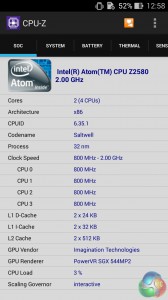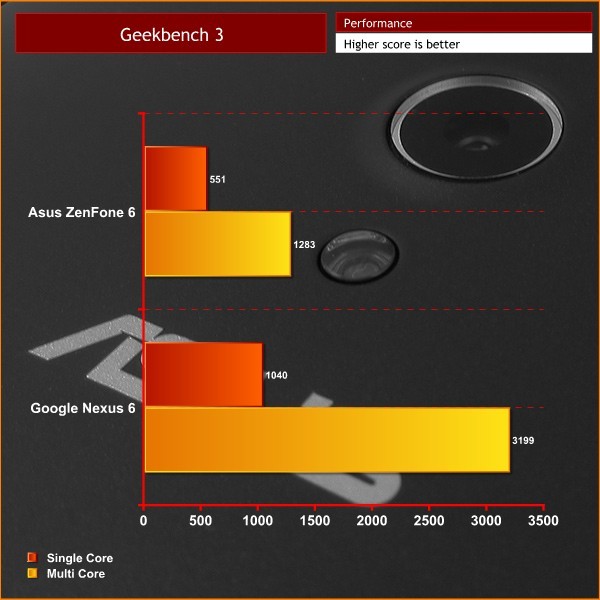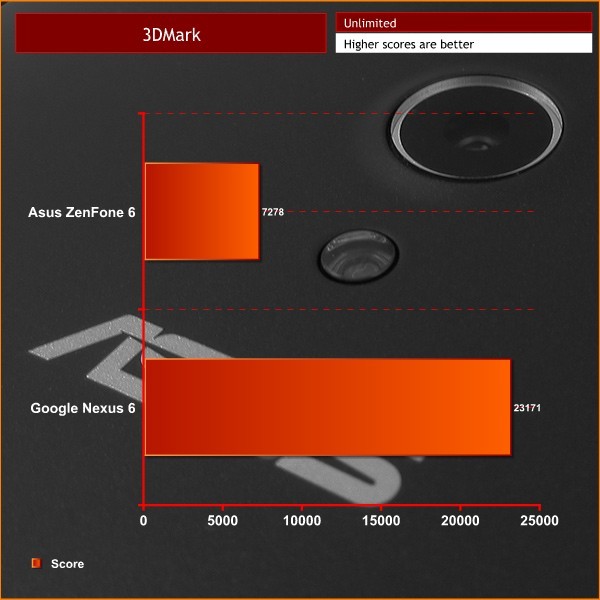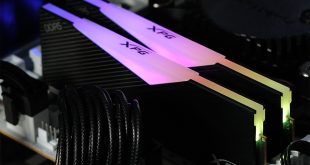
Making everything tick within the phone is the Intel Atom Z2580 multi-core processor, clocked at 2.0 GHz. It uses two physical cores – but four threads – so multi-tasking should be well managed. Paired with the CPU is 2GB of RAM and a PowerVR SGX544MP2 graphics unit.
In real-world use, the ZenFone is superb. Always responsive, we were never kept waiting for apps to open, nor did we experience lag in games like Temple Run 2. Multi-tasking proved a breeze for the Z2580 CPU – switching between apps was effortless, even with 10 tabs open in Chrome and another 10 apps open in the background.

The ZenFone didn't perform as well in the benchmark tests we ran. In Geekbench 3 it scored 551 for single-core performance, and 1283 for its multi-core performance. This lags behind the premium Nexus 6 which scored 1040 and 3199 respectively.

The 3DMark Ice Storm Unlimited test was another area where the ZenFone fell down against its pricier opposition. ASUS' device scored 7278 here, whilst the Nexus posted a huge 23176 – over 3 times the performance of the ZenFone.
At the end of the day, a benchmark just shows how far your hardware can be pushed. In everyday use, the ZenFone is brilliant. But if you're in need of a device with more grunt, you may have to look elsewhere.
 KitGuru KitGuru.net – Tech News | Hardware News | Hardware Reviews | IOS | Mobile | Gaming | Graphics Cards
KitGuru KitGuru.net – Tech News | Hardware News | Hardware Reviews | IOS | Mobile | Gaming | Graphics Cards

Considering its price, this seems like a strong contender for the nexus spot. Given that the new Nexus 6 retails for around £500.
✉✉⚓✉⚓✉⚓get over 13kM0NTH@ag21:
Going Here you
Can Find Out,
►►► https://WorkOnlineApp.com/get2/position98…
I have this phone… after 3 months of usage 2 stuck pixels appeared. Had to send it back for screen replacement now I have to wait a month or more :c
you dont have this phone the phone just came out this mount
zenfone 6 is from 2014 brah